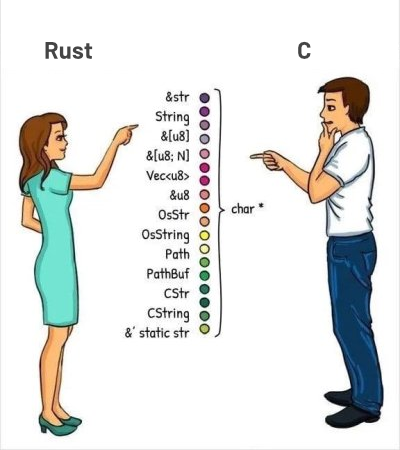Without any ::prelude and some void* arguments.
Maybe you have thoughts about it.
The URL is just a sample of “why” but not “because”.
I have my own preference but will keep it inside my mind to not burn a tornado that will erase me from the matrix of the world.
P.S.: I think C is faster, more powerful, and more elegant. I like it more than Rust.



I think you’re talking past the point I’ve made.
The point I’ve made is that the bulk of these attempts don’t even consider onboarding basic static analysis tools for projects. Do you agree?
If you read the post of other studies you’ve quoted, you’d be aware that some of them quite literally report results of onboarding a single static analysis tool to C or C++ projects. The very first study in your list is quite literally the results of onboarding projects to Hardware-assisted AddressSanitizer, after acknowledging that they haven’t onboarded AddressSanitizer due to performance reasons. The second study in your list reports results of enabling LLVM’s bound sanitizer.
Yet, your personal claim over “the lack of memory safety” in languages like C or C++ is unexplainably based on failing to follow very basic and simple steps like onboarding any static analysis tool, which is trivial to do. Yet, your assertion doesn’t cover that simple step. Why is that?
Again, I think this comparison is disingenuous. You take zero effort to address whole family of errors and then proceed to claim that whole family of errors are not addressed, even though nowadays there’s a myriad of ways to tackle those. That doesn’t sound like a honest comparison to me.
You’re misunderstanding the posts you’re explaining. Sanitizers, including ASan, HWASan, and bound sanitizer, are not “static analysis tools”. They are runtime tools, which is why they have a performance impact. They’re not intended to be deployed as part of a final executable.
I don’t know how you can read this sentence and interpret it to mean that they “haven’t onboarded AddressSanitizer”: